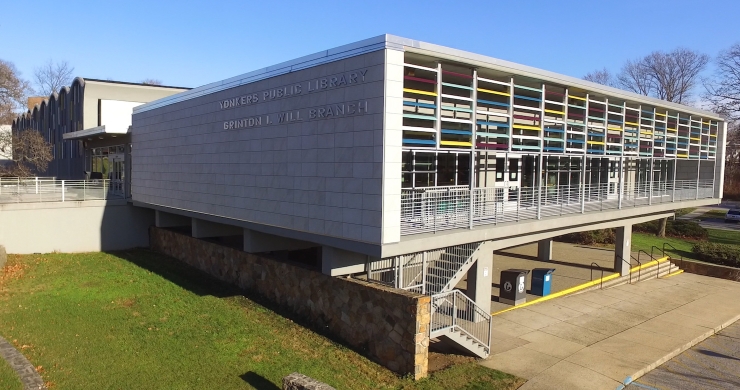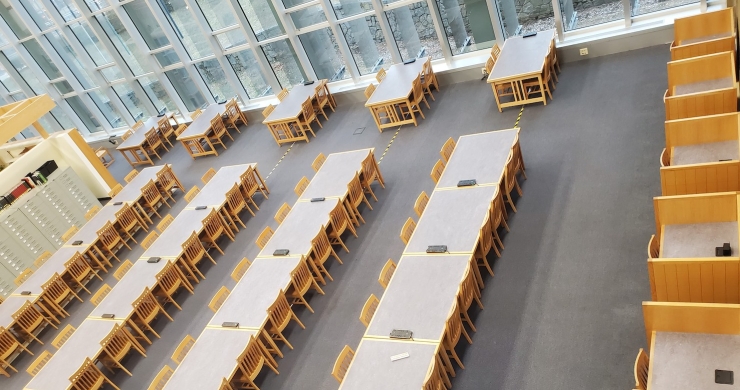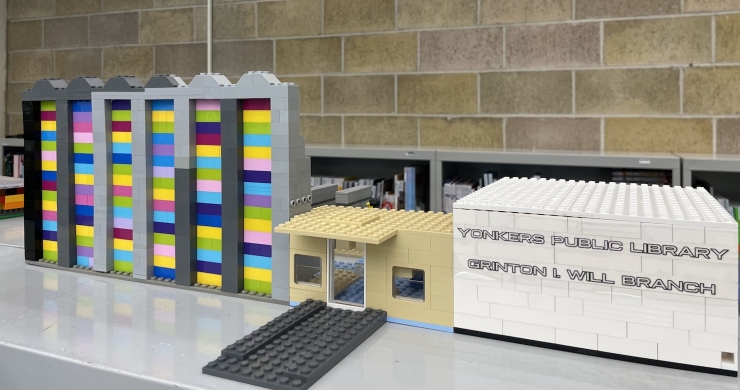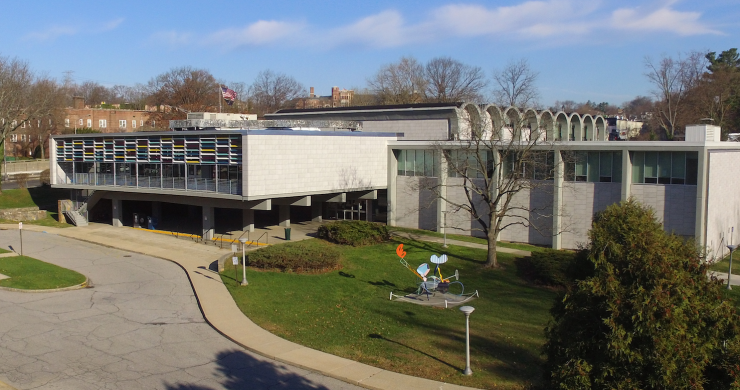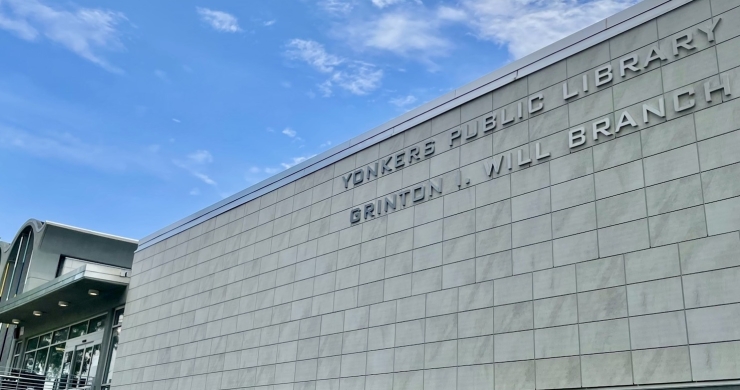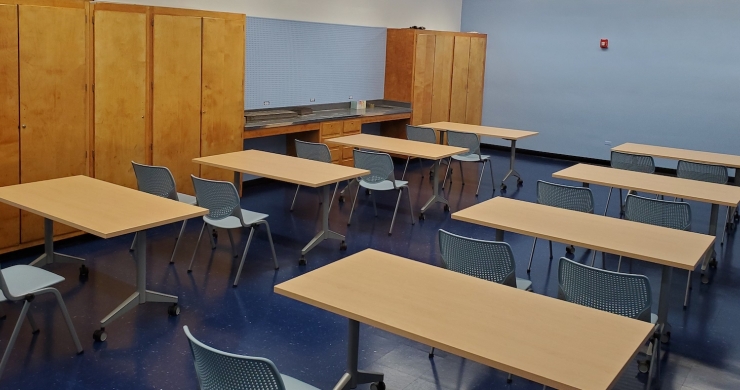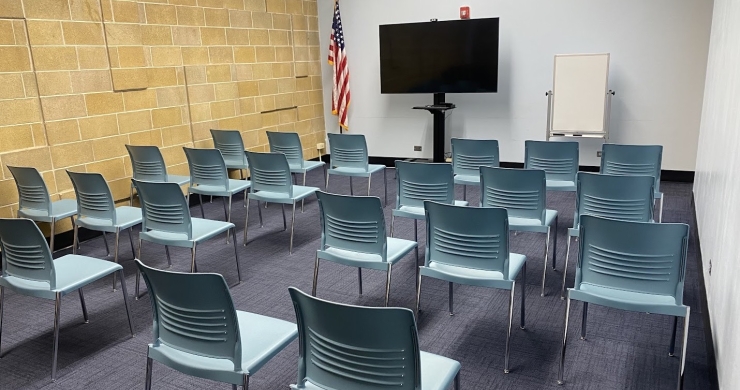Directions to the Will Library
BY CAR
From the North:
• Sprain Brook Pkwy S toward New York City.
• Merge onto NY-100 S / Central Park Ave toward Central Ave.
• Turn right onto Palmer Rd
• Turn right onto NY-100 / Central Park Ave.
• Keep right at the fork to go on Central Park Ave.
• The library is on the right.
From the East:
• Hutchinson River Pkwy S.
• Keep left to take Cross County Pkwy W via EXIT 15 toward George Washington Brg.
• Take the Bronx Pkwy N exit, EXIT 6, toward Sprain Brook Pkwy.
• Merge onto Sprain Brook Pkwy N.
• Merge onto Central Park Ave/NY-100 N toward Central Ave.
• Keep right at the fork to go on Central Park Ave.
• The library is on the right.
From the South:
• Merge onto I-87 N via the ramp on the left toward Albany.
• Merge onto NY-100/Central Park Ave via EXIT 5 toward White Plains.
• Keep right at the fork to go on Central Park Ave.
• The library is on the right.
BY BUS
Bee-Line bus 8 to Tuckahoe Road & Central Park Ave. Library is a block away.
Bee-Line bus 4, 7, 25 or 30 and transfer to the 20 bus going towards the Bronx. Get off at Tuckahoe Road & Central Park Ave. Library is a block away.
Will Library Phone Numbers
Fine Arts Dept: 914-337-1500, x346
Circulation: 914-771-9616
Children’s Dept: 914-337-1500, x306
Reference Dept: 914-337-1500, x315
About the Will Library
When the Sprain Brook branch of the Yonkers Public Library opened on November 11, 1962, the event was front page news.
“Library Branch Opens; 10,000 Come To See,” was the headline in the next day’s edition of the Yonkers Herald Statesman.
November 11 was a Sunday, and the purpose of opening the new building on that day was not to conduct library business (that would begin on Monday, November 12) but to dedicate the building and to open it for the public to tour. Mayor John Flynn was given the honor of cutting the ribbon.
November 11 was also Veterans Day, and the opening day’s ceremonies began outside the building, at 2 P.M., with the raising of the American flag. In honor of the nation’s war dead, members of American Legion Post 7 discharged a rifle volley, following which Taps was played by bugler Thomas Pine. (Yonkers resident Pine had been the personal bugler of General John Pershing during World War I.) The flag that flew over the library grounds that day had flown earlier over the Capitol building in Washington, D.C. It had been secured for the library through the good offices of New York Senator Jacob Javits.
The brief dedication ceremony occurred indoors, in the new building’s auditorium. Several local officials spoke briefly and prayers were offered by a rabbi, a minister, and a priest. Perhaps the ceremonial highlight of the day came when Eli Rabineau, the building’s architect, presented the key to the building to Tristram M. Metcalfe, Jr., president of the Yonkers Public Library’s board of trustees and Mr. Metcalfe, in turn, presented the key to library director Grinton I. Will.
The building was designed by local architect Eli Rabineau in consultation with Joseph L. Wheeler, former director of Baltimore’s Enoch Pratt Library and author of a book on library architecture, The American Public Library Building. Rabineau, who designed the building to be constructed with common materials such as concrete, cement, and glass, was the architect of many public buildings, including Yonkers’s Walt Whitman Junior High School. Public buildings, he once said, are “the only means by which a community can give visible and tangible expression to its goals.”
The library’s facade is notable for its nine vaulted arches and the variously colored porcelain enamel panels cascading from them. (The panels, besides their aesthetic value, serve to protect readers in the main reading area from the glare of sunlight.)
Among the features of the library building that from the opening day drew the attention of the press and public were the four study carrels (the first ones in any county public library), the projection room, the spacious auditorium, and the activities rooms, including the room set aside for senior citizens under the sponsorship of the city’s Recreation Commission.
In April 1964, the Sprain Brook branch was recognized as one of the 16 most outstanding library buildings constructed within the previous five years. This recognition came from the Library Building Award program sponsored jointly by the American Institute of Architects, the American Library Association, and the National Book Committee. The program’s stated goal was “to encourage excellence in [the]architectural design and planning of libraries.” The award recognized the excellence of Sprain Brook as “a city library planned for an irregular site on a busy thoroughfare.” Eli Rabineau had designed what the award jury judged to be “an attractive and functional building.”
In April 1973, the Sprain Brook branch was renamed the Grinton I. Will Library, in honor of the retiring library director who had overseen the operations of the Yonkers Public Library since 1933.
Services at the Will Library

- Library-by-Mail is a service provided by Yonkers Public Library for library materials to be mailed to people who are homebound.
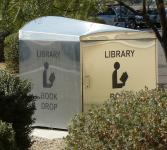
Book drops are available outside all of the Libraries when they are closed.

A Westchester County library card is needed to borrow materials.
BOOKS
